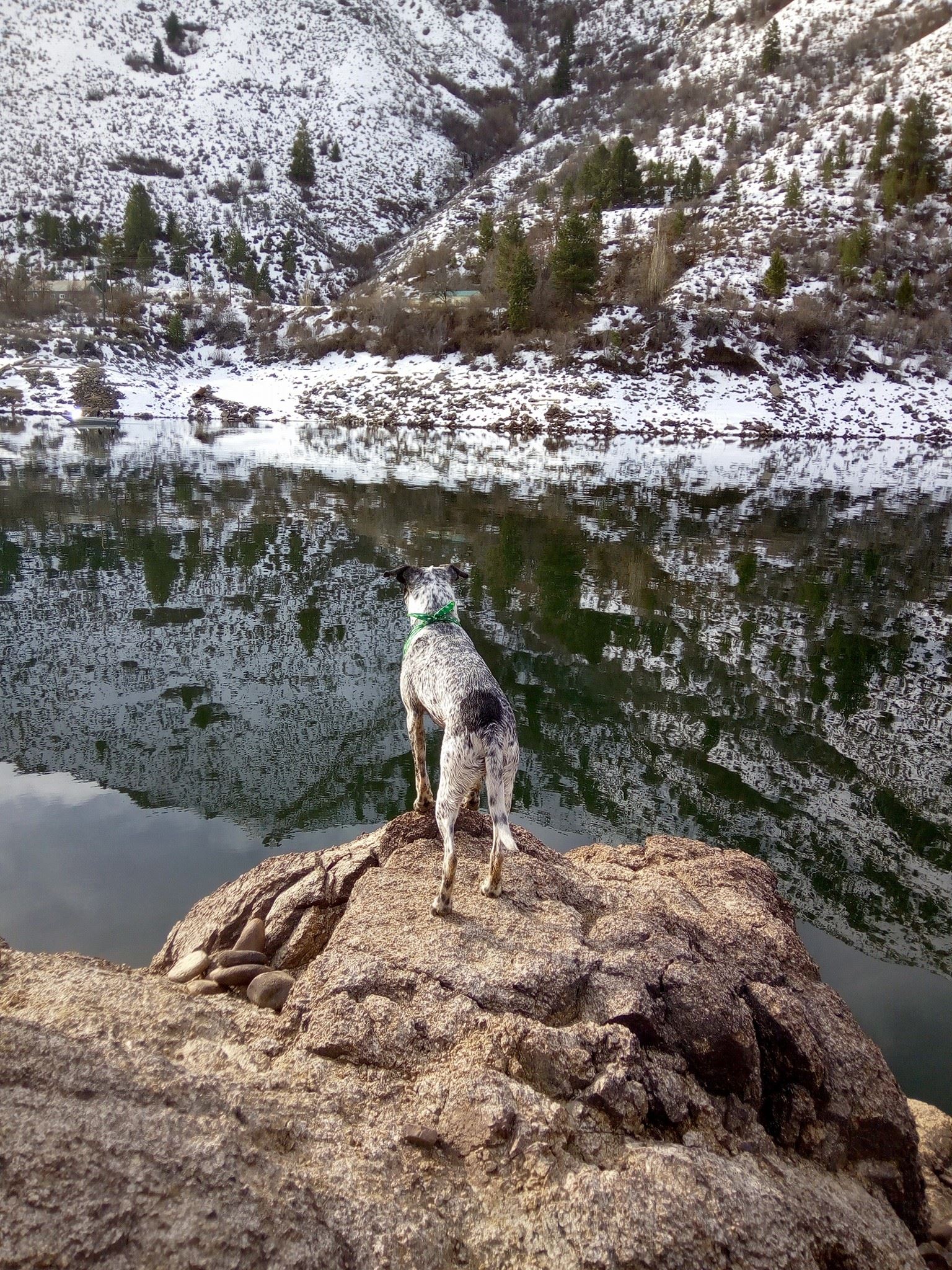What I want to know is did the squids use the chalk roads or did the squids become the chalk roads.
It is said that eons ago, a wise and benevolent squid elder named Ozymandias possessed the power to manipulate the very essence of chalk.
When the squid community faced a perilous migration across treacherous terrains, Ozymandias would emerge from the depths and lay down chalk roads, imbued with his magical ink, to guide his fellow squids safely to their destination. These chalk roads glowed with an ethereal blue light, illuminating the darkest depths of the ocean.
As time passed, the squids would harness the power of Ozymandias’ magical ink to transform themselves temporarily into living chalk roads. By intertwining their arms and tentacles, they would create a network of living paths on the ocean floor, allowing other marine creatures to traverse great distances with ease.
And thus the squid was enlightened
It is said that if the squids are in great danger, the squid king can awaken the giant squid in the living chalk paths. This apocalyptic event is known as the bubbling.
~Bubbling. Bubbling. It’s coming ~
🏅 here’s my gold
great story!
Yes.
Seems to me based on your username the squids didn’t need roads at all
You gotta land sometime.
This is waaaaay to simple of a depiction of modern roads. Modern infrastructure is super complex, with roads going down meters with many different layers and components.
I would recommend the Practical Engineering YouTube channel to get some insight in how complex our modern infrastructure actually is. Things that seem so simple on the surface are often really complex.
Also: roads aren’t designed for cars, they are designed for super heavy big vehicles carrying tons of materials. If the road can handle those, the cars don’t really matter all that much.
Practical Engineering is a great channel for anyone even slightly curious about civil engineering! Grady does a great job at making infrastructure perfectly accessible
He’s recently dived into electrical stuff as well. He’s a great presenter and I always enjoy his demo setups.
deleted by creator
Back when trader squids roamed the planet
I’m more of a bartering squid.
I long to end the age of capitsquidism and return to a ancephalo-communist way of living
Squids of the world, unite! We have nothing to lose but our ink!
I’d shop at a store named Trader Squids, that sounds awesome
deleted by creator
The future is now
오징어 차
The medieval cart track looks like a smoother ride than the turnpike road.
The medieval track probably turned into a long mud pit after any prolonged rain.
Yeah, I was more than a little bit surprised by just how unpleasant victorian roads would seem to feel. I knew it was bumpier, but that’s all bumps and nobody cared? They just left it and went home?
Love it that they illustrated cars with a Jaguar XJ220!
It’s a British display and Jaguar was a British company. It’s owned by Ford now.
Ford sold it years ago, now it’s owned by an Indian company.
The Indians traded it away eons ago. It’s now a Crimean non-profit.
I thought the same thing, interesting choice.
From our humble origins riding squids, to blasting down the highways in our Jaguar XJ220s - we’ve come a long way baby.
I guess many roads are hundreds, if not thousands of years old. There are not many reasons to change the position of an established road, e.g. between cities, so I think the main roads that connect them often started as trails between villages and where upgraded according to the needs of the people. The junction in your city next to your city hall may have been an important trading spot before the middle ages already.
One day through the primeval wood A calf walked home as good calves should;
But made a trail all bent askew, A crooked trail as all calves do.
Since then three hundred years have fled, And I infer the calf is dead.
But still he left behind his trail, And thereby hangs my moral tale.
The trail was taken up next day, By a lone dog that passed that way;
And then a wise bell-wether sheep Pursued the trail o’er vale and steep,
And drew the flock behind him, too, As good bell-wethers always do.
And from that day, o’er hill and glade. Through those old woods a path was made.
And many men wound in and out, And dodged, and turned, and bent about,
And uttered words of righteous wrath, Because 'twas such a crooked path;
But still they followed—do not laugh— The first migrations of that calf,
And through this winding wood-way stalked Because he wobbled when he walked.
This forest path became a lane, that bent and turned and turned again;
This crooked lane became a road, Where many a poor horse with his load
Toiled on beneath the burning sun, And traveled some three miles in one.
And thus a century and a half They trod the footsteps of that calf.
The years passed on in swiftness fleet, The road became a village street;
And this, before men were aware, A city’s crowded thoroughfare.
And soon the central street was this Of a renowned metropolis;
And men two centuries and a half, Trod in the footsteps of that calf.
Each day a hundred thousand rout Followed the zigzag calf about
And o’er his crooked journey went The traffic of a continent.
A Hundred thousand men were led, By one calf near three centuries dead.
They followed still his crooked way, And lost one hundred years a day;
For thus such reverence is lent, To well established precedent.
A moral lesson this might teach Were I ordained and called to preach;
For men are prone to go it blind Along the calf-paths of the mind,
And work away from sun to sun, To do what other men have done.
They follow in the beaten track, And out and in, and forth and back,
And still their devious course pursue, To keep the path that others do.
They keep the path a sacred groove, Along which all their lives they move.
But how the wise old wood gods laugh, Who saw the first primeval calf.
Ah, many things this tale might teach— But I am not ordained to preach
- The Calf Path by Sam Foss
:)
Fitting, and really does make you wonder.
Thank you.
I’ve read this before, but it’s one of my favorites, and it makes me ponder and smile whenever I read it.
There are not many reasons to change the position of an established road, e.g. between cities
Well, for once, Eridu is gone now.
I had to look up this road, it goes right by Stonehenge in England. Absolutely wild.
Yeah I used to live in the area and the 303 has a local reputation for being absurdly busy at the roundabout near stonehenge, especially during the summer solstice.
I mean some road had to be near Stonehenge. Just like theres a nearest road to the Pyramids or the Eiffle Tower or the grand canyon.
You can find your way home, on the 303
You can let somebody know, on the 303
Oh on the 303
The next road is room temp. superconductor and we levitate thru the road by Meissner effect.
The turnpike road seems scarcely different from the bottom Roman road.
Roman road was likely better. They knew what they were doing and the quality of turnpikes were mixed at best.
Next step is going to be chalk again when the cephalopods join the orcas in spreading Poseidon’s wrath.
What’s above modern road? Silicon?
“Where We’re Going, We Don’t Need Roads”
You think it’s motivational and uplifting, but really we’re just all going to scavenge in the ruins
Charred bones.
Metal rails
High tech Japanese superconducting MAGLEV trains (someday).
Most likely Chinese.
They’re burying it, so… air, then the top of a tunnel.
deleted by creator
There’s a company in Sandpoint, ID that is developing solar panels made from glass to replace asphalt. It’s still in fairly early development, but it’s an interesting idea.
It’s been tried and failed before
https://interestingengineering.com/innovation/solar-roadways-engineering-failure
Doesn’t work. Keep the solar panels on roofs and over canals where they can get sun. Keep the roads simple stone so they are durable and cheap.
EEVBlog did the math about the thing and with our current (and predicted) tech it’s rubbish. There just isn’t enough power from it to gain much even if roads cover a lots of square meters and durability of currently available panels just isn’t there. It’s just bloody expensive road with miniscule amounts of power in exchange.
never mind the whole “putting solar panels underneath cars that block the light” thing, what i want to know is why people think it’s a good idea to use glass for roads?
This is really cool! Which museum/where is something like this?
This is really cool! Which museum/where is something like this?
If you bring your own shovel it’s a lot of roads over here in the UK


















